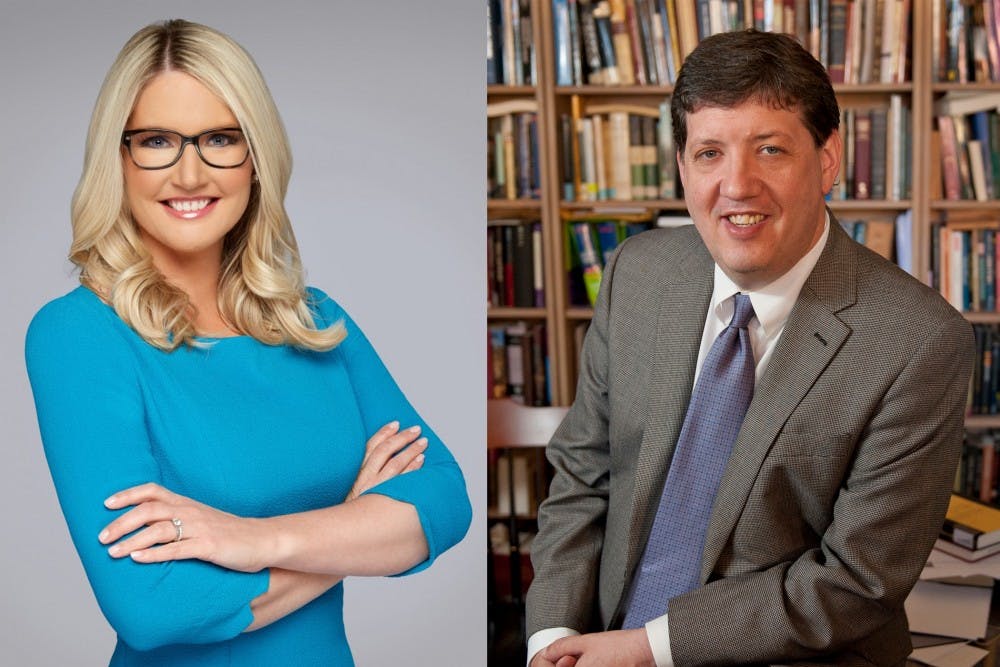
Marie Harf and Steven Weitzman
As Penn students gear up to select classes for next semester, one unique religious studies course hopes to reframe the way students perceive religion and its unmistakable role in shaping the global future.
Penn's Religious Studies Department will offer a course called Religion and the Global Future, which will be led by Religious Studies professor Steven Weitzman and former Obama administration communications official Marie Harf. Weitzman said the goal of the course is for students to understand that religion is still pervasive in society today and will have dramatic effects on global problems.
The class will study religion and its relation to public policy and government. Each week, a new guest lecturer, typically an academic expert or government official, will visit, and students will participate in discussions led by Harf and Weitzman about the week's topic.
Some major topics that the class will cover are religion in relation to human rights, international conflict and terrorism, technology, conflict resolution, economic inequality, and gender equality.
“The idea is to put the study of religion into conversation with the study of public policy, government, in particular about the future of the world," Weitzman said, noting religious opposition to climate change as a prime example.
The class also aims to expand beyond common preconceived notions of religion.
“Everyone is realizing that religion is not declining and it has this big global impact," said fourth-year Ph.D. student Gabriel Raeburn, who is helping lead the course.
“One thing that we really want to focus on is to think about religion beyond just being a church and to look at how it impacts and is impacted by a whole range of different forces and actors," Raeburn added. "We also aim to tie religion into public policy and government, when we often think of those two things as being in opposition or not aligned with each other."
Religion and the Global Future is unique not only because of the class structure, but also because it branches beyond just religious studies, according to Raeburn.
“The course branches outside of religious studies to appeal to people who are probably in international relations or political science," he said. "It’s moving out of the department into different realms of Penn.”
Weitzman met Harf when he taught her at Indiana University Bloomington. Weitzman’s background in religion and Harf’s background in government make them the perfect pair to co-teach this class.
Marie Harf, a political commentator for Fox News Channel, formerly worked for the Central Intelligence Agency. During her time with the CIA, Harf was a media spokesperson and analyst focusing on Middle East leadership issues. During the 2012 election, Harf was Barack Obama’s campaign spokesperson on national security issues. Following the election, she worked as the Senior Advisor for Strategic Communications to John Kerry.
Weitzman said that the class has been made possible by a fund from the School of Arts and Sciences dean, the Global Initiatives Fund, the Perry World House, and the Katz Center for Advanced Judaic Studies.
“The goal is to help students appreciate, whether they are religious or not religious themselves, how important it is to understand religion in order to understand what is happening to the world right now," Weitzman said.
The Daily Pennsylvanian is an independent, student-run newspaper. Please consider making a donation to support the coverage that shapes the University. Your generosity ensures a future of strong journalism at Penn.
Donate




